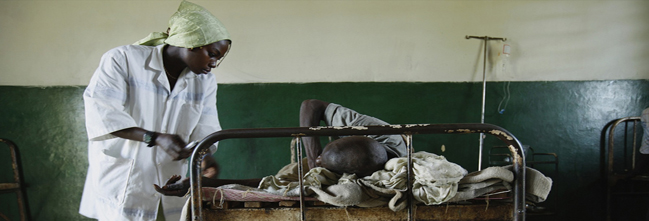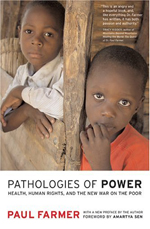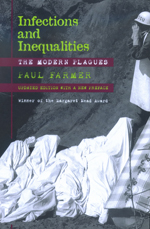
Anthropology is unique amongst the social sciences in its ability to integrate the biological, social and cultural aspects of what it means to be human. The discipline’s holistic approach renders it particularly beneficial to the study of health and medicine. Biological anthropologists work in medical schools or departments of physiology, nutrition and pathology, conducting research on evolutionary origins, lifestyles and dietary changes that may shed light on contemporary health issues. Biological anthropologists also find posts as researchers looking at human genetic development or, if they have undergone specialised forensic training, as medical/legal consultants identifying skeletal remains.
Social anthropologists can find jobs working for health ministries, or with organisations such as Oxfam, the World Health Organisation, and local medical centres. They often fulfill roles acting as cultural mediators, helping to communicate cross-cultural understandings of health and illness in order to make public health initiatives more effective for specific groups. Some social anthropologists work with non-western medical practitioners documenting their healing practices and analysing their role within a community. Whether researching epidemics, looking at lifestyle issues, or assessing public health policies, anthropologists aim to enhance communication and understanding of health and illness across local and global contexts.
Recommended Resources
Visit our Medical Anthropology webpage
Films
The Pfizer “” Distinguished Health Leadership Speaker Series presents this talk and reception featuring anthropologist Dr. Paul Farmer, recipient of the 2009 UC Berkeley International Public Health Hero Award.
Dr. Farmer is the Maude and Lillian Presley Professor in the Department of Global Health and Social Medicine at Harvard Medical School, and a founding director of Partners In Health, an international nonprofit organization that provides direct health care services and undertakes research and advocacy activities on behalf of those who are sick and living in poverty. Dr. Farmer’s work draws primarily on active clinical practice and focuses on community-based treatment strategies for diseases that disproportionately afflict the poor, health and human rights, and about the role of social inequalities in determining the distribution and outcomes of infectious diseases.
Books



Pathologies of Power: Health, Human Rights, and the New War on the Poor by: Farmer, P. University of California Press (2004)
Infections and Inequalities: The Modern Plagues by: Farmer, P. University of California Press (2001)
Commodifying Bodies by:Scheper-Hughes, N. and Wacquant, L. (Eds) (Sage Publications,2002)
Anthropology in Public Health: Bridging Differences in Culture and Society edited by: Robert A Hahn (Oxford University Press, 2009)
Exploring Medical Anthropology by: Donald Joralemon (Allyn & Bacon, 2009)
Articles
http://www.guardian.co.uk/science/2009/jul/06/obituary-cecil-helman – a memoir of the life and work of anthropologist Cecil Helman.
General
http://www.medanthro.net/aarg/index.shtml – AIDS and Anthropology research group.
https://www.palomar.edu/anthro/medical/default.htm – A teaching/learning tutorial covering various aspects of medical anthropology, created by Dr. Dennis O’Neil of Palomar College.
Recruitment
http://www.who.int/en/ – The World Health Organisation is the directing and coordinating authority for health within the United Nations system.
http://www.nhs.uk/Pages/homepage.aspx – The National Health Service in the UK is the world’s largest publicly funded health care system.
Professional Organisations, Groups and Associations
The European Association of Social Anthropologists’ Medical Anthropology Network – The network aims to connect national, regional, and transnational networks of anthropologists working in this subfield.
The Society for Medical Anthropology – The SMA serves to promote the support and collaboration of graduate students, anthropologists, and scholars who address issues of local, national and international health importance.
The Royal Anthropological Institute’s Medical Anthropology Committee – is a committee concerned with anthropological research and teaching relating to health, sickness, medicine and healthcare around the world.

